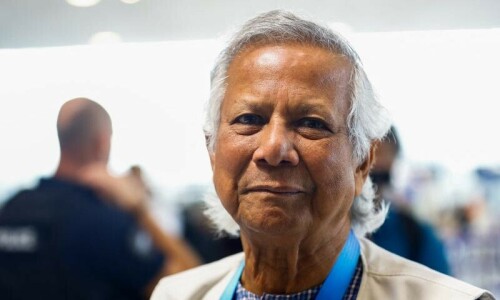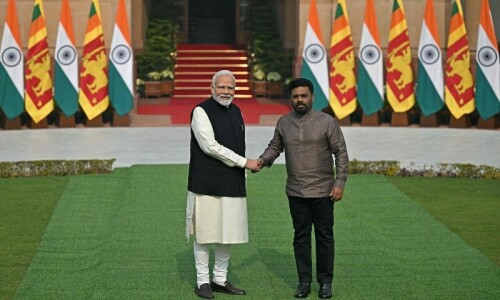ISLAMABAD: The All Pakistan Textile Mills Association (Aptma) has called on the government to renegotiate its commitment with the International Monetary Fund (IMF) regarding the planned discontinuation of gas supply to captive power plants in the textile sector by the end of January next year, emphasising that maintaining this facility is crucial for the industry to recover lost ground and enhance exports.
An Aptma delegation led by its Chairman Kamran Arshad made this demand, among others, during a meeting with Commerce Minister Jam Kamal here on Friday.
The delegation conveyed the concerns of textile exporters and urged the minister to play a role in resolving issues facing the sector. Mr Arshad stressed that without uninterrupted gas access, the textile sector would struggle to recover and expand exports.
He outlined the various challenges confronting the textiles and apparel industry, including the potential disconnection of gas supplies to industrial captive power plants, high electricity tariffs, increased taxes, and a liquidity crunch. These issues, he said, could undermine the industry’s competitiveness and hinder export growth.
The Aptma representatives also raised the issue of the withdrawal of sales tax exemptions on local procurement under the Export Facilitation Scheme (EFS), introduced in the Finance Act of 2024. While imports of similar inputs remain exempt from taxes, locally sourced materials are now subject to an 18 per cent sales tax. The delay in tax refunds through the FASTER system has further strained exporters, pushing them toward importing materials and potentially destabilizing the domestic supply chain.
Says gas supply to captive power plants crucial for industry to recover lost ground, enhance exports
According to an official announcement, the commerce minister assured the Aptma delegation of the government’s commitment to supporting the textiles and apparel sector. He acknowledged the sector’s importance to the economy and socio-economic development, emphasising that the government would extend full support to ensure the sector’s sustainability and growth.
“The textiles and apparel industry is the established sector, and government will extend maximum support for its sustainability and growth,” he stated. The minister also expressed optimism about increasing textiles and apparel exports through collaborative efforts and supportive policies.
Mr Kamal encouraged the industry to focus on both existing markets and explore new ones, as well as diversify into value-added finished products. “I will personally engage with the relevant authorities to find solutions,” the minister assured the delegation.
The Aptma delegation included Textile Council Chairperson Aamir Fayyaz Sheikh (Kohinoor Mills), Anees Khawaja (Mahmood Group), Rahim Nasir (Ayesha Group), Naveed Ahmad (Indus Dyeing), Naveed Gulzar (Crescent Mills), Asad Shafi (Cross Stitch), Ali Ahsan (Ashiana Cotton), Aptma Executive Director Shahid Sattar and Aptma North Secretary General Raza Baqir.
Published in Dawn, November 16th, 2024














































Dear visitor, the comments section is undergoing an overhaul and will return soon.